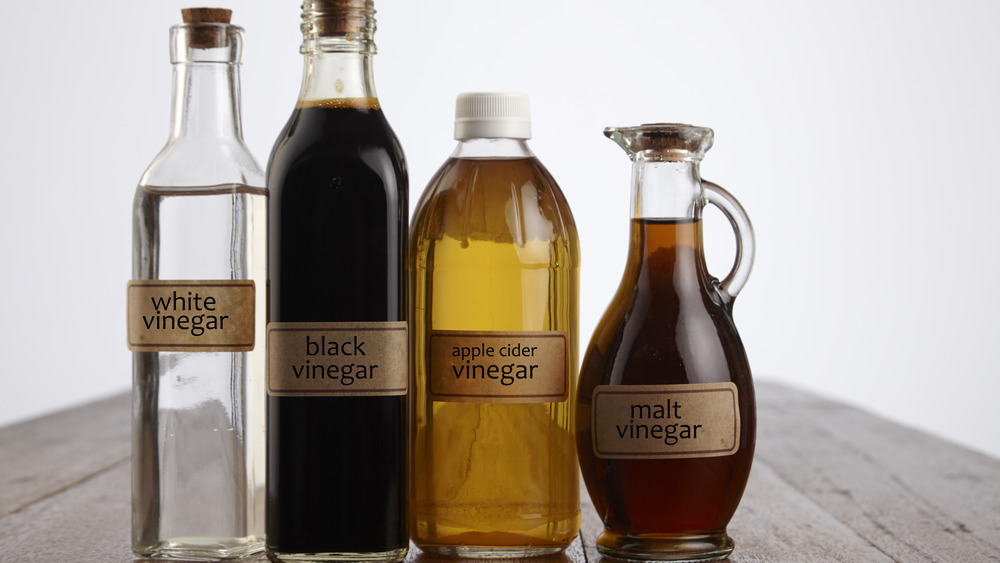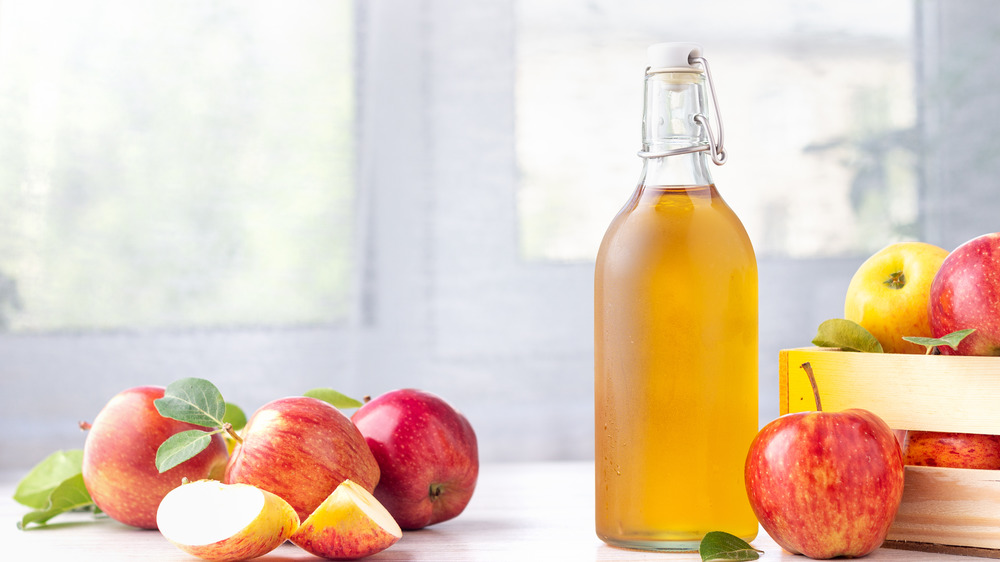This Is Why Vinegar Never Expires
Vinegar has been around pretty much forever. According to Wormersley Foods, very small amounts of this acidic liquid were found in Egyptian urns that date back to 3000 B.C. It was known as the "poor man's wine" and drunk by Roman soldiers. Fast-forward to the present day, and we still use vinegar in a myriad of ways.
What exactly is vinegar? The Vinegar Institute says that vinegar is defined as a sour liquid that is made from "acetic fermentation." Vinegar's etymology, per Cook'n, is rooted in French, coming from the phrase "vin aigre," which means "sour wine." There are many different kinds of vinegar, each using a different fermented liquid as its base resulting in some of our favorites – rice vinegar, apple cider vinegar, red wine vinegar, champagne vinegar, and the list goes on. From cooking to cleaning to germinating seeds, vinegar is exceptionally useful. But did you know that vinegar never goes bad? You read that correctly. There are some pantry staples that are absolutely perfect to keep on hand if there is ever a zombie apocalypse, and vinegar is one of them. Vinegar basically doesn't expire and here's why.
Vinegar is self-preserving
Fermentation creates vinegar's staying power, and it is said to have an almost indefinite shelf life because its acidity makes it self-preserving. In fact, per the site Eat by Date, vinegar is used as a preservative to keep other foods, like pickles and peppers, ready to eat (though not indefinitely). But the site also notes that substances that can have been added to vinegar may impact whether it should still be used over time. So while white distilled vinegar - which is made with water and corn ripened by the sun – won't be touched by the hands of time, certain kinds of vinegar that have flavors added to them might be worth replacing after half a decade or 10 years because the flavor may have degraded.
What is the proper way to store vinegar? First, keep it away from heat and someplace where it can maintain a fairly constant temperature. Additionally, store your vinegar in its original bottle or jar with the cap tightly on, in a dark cabinet. If you happen to notice that your older bottles of vinegar have a hazy appearance at the bottom, that should not be of too much concern. It is not considered harmful, but the vinegar might not have the same taste depending on what was added to it. Keep in mind that vinegar in food is only as good as the food's shelf life.

